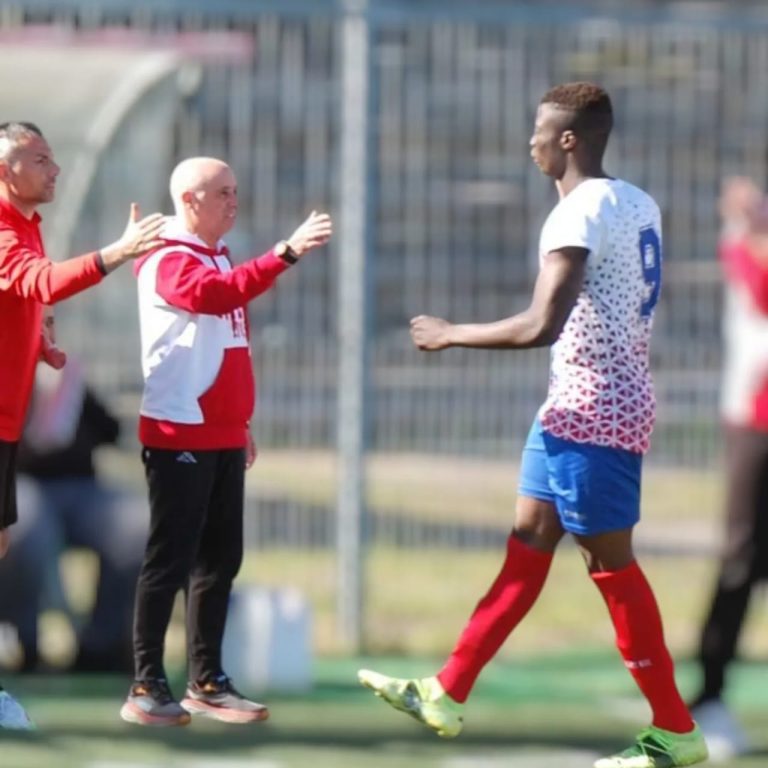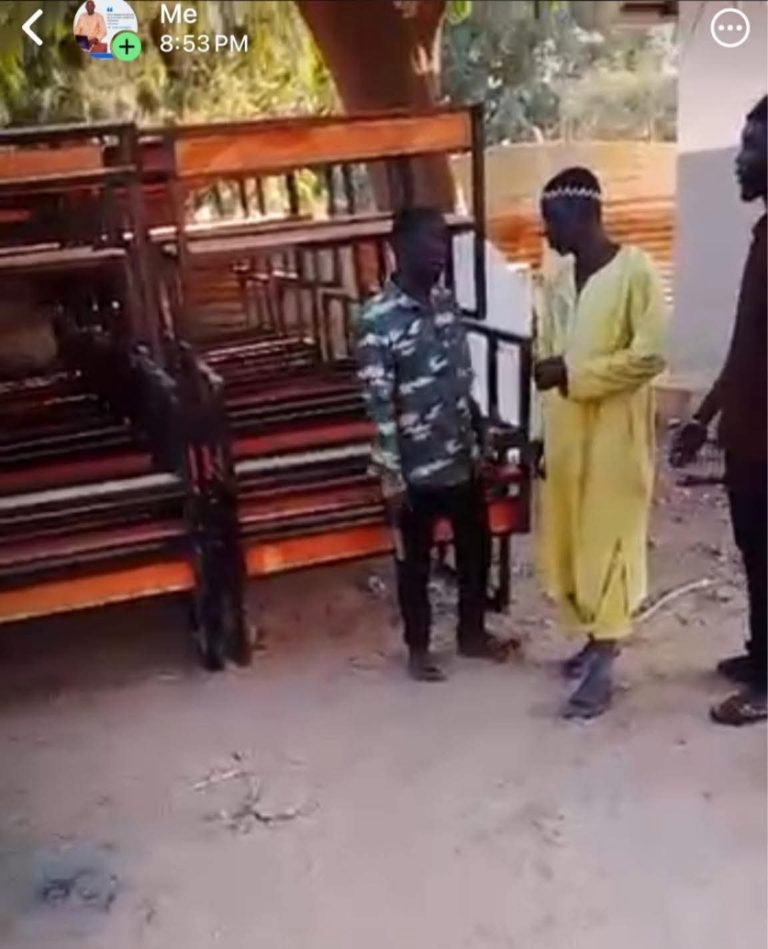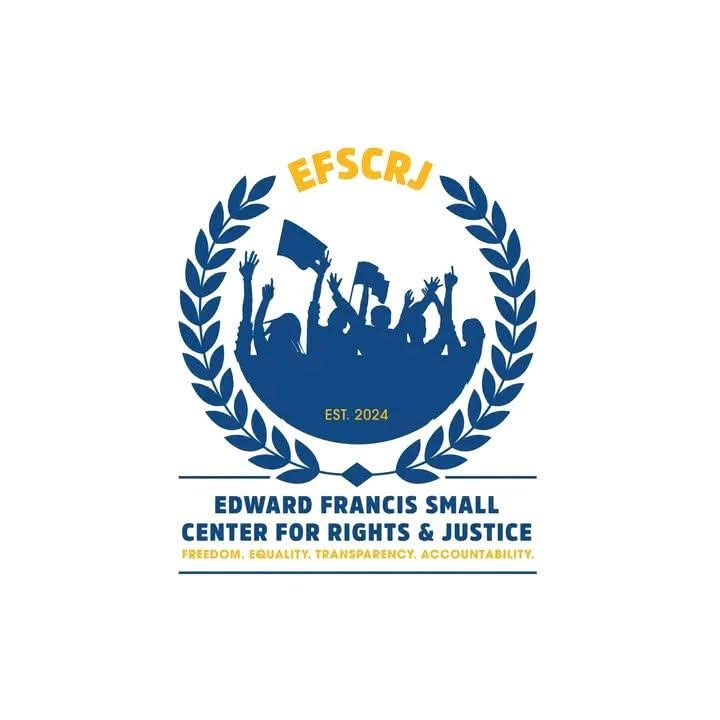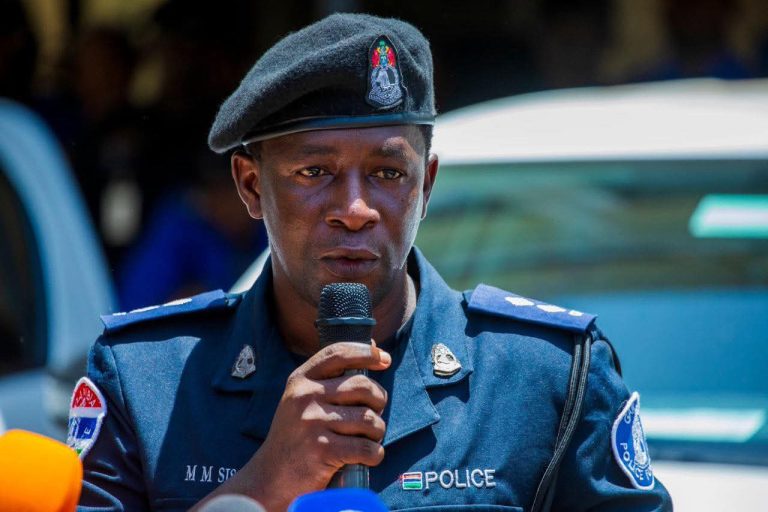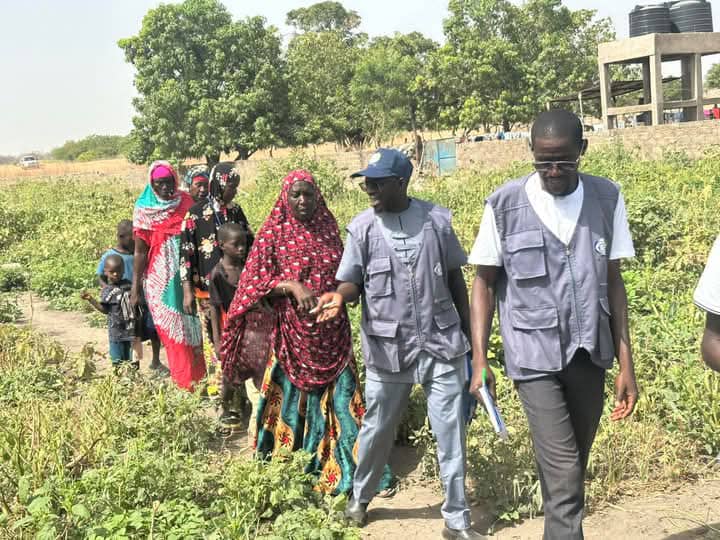
Beakanyang, a human rights, environmental sustainability, and development NGO in the Gambia, is currently on a field visit to monitor their sponsored project sites in the Upper River Region.
The group is visiting their LAHIDO project intervention communities across the Jimara district and climate change projects in Wuli.
Jimara Fatako, Dembanding, and Sotuma Samba communities in URR have reaffirmed their commitment to the total abandonment of FGM and Child Marriage.
Parents, including Kabilo Heads and mothers who signed up for our village anti-FGM and Child Marriage Charters, informed our monitoring team that they have already declared their respective communities as Free Zones and vowed to totally eliminate the harmful traditional practices.
“I have signed the charter to protect my granddaughter, who is under my care, and seven months since then, she is still safe and will never undergo these practices. I’m also working with other moral guarantors in this village to make sure LAHIDO is not only successful in this village but scale up to other communities across the country,” Alkalo Salifu Jawo of Sotuma Samba.
“‘I’m a beneficiary of the LAHIDO project both as a participant and a moral guarantor and I can confidently say that thanks to this project, FGM and Child Marriage are becoming a thing of the past,” Mustapha Saidy, Fatako VDC chairman.
“We feel empowered and more enlightened by the LAHIDO project, and we appreciate the approach as it’s helping us to save our girls from harmful traditional practices. Right now, no girl in this community is going to school, and we will make sure none of them drop out, Muhammed Sabally of Dembanding.
In 2023, we supported the women of Barrow Kunda in Wuli with a borehole, garden inputs, and a community market for the marketing of their products.
Earlier today, as part of our ongoing monitoring visit to our various intervention projects across URR, we visited the community to assess the impact of our interventions.
Speaking to Isatou Sanneh, one of the beneficiaries, she said the project has helped improve their lives and livelihood.
“We have enough water to meet our needs, and the borehole is of good quality as it never had any issues since we got it,” she said.
Another beneficiary, Nyara Sidibeh, said, as you can see, I came to harvest. We use the garden to feed our families and also make some income,” she said.
At the market, beneficiaries, including Jankeh Wally and Kumba Sidibeh, praised Beakanyang for elevating their status.
“We used to sell on the ground, but since we got this market, that has stopped, and it has also attracted more customers as our daily sales increased significantly,” they said.
Our Executive Director, Mr Nfamara Jawneh, applauds the women of Barrow Kunda for their hard work and for making the best use of the project.
He reaffirmed Beakanyang’s continued commitment to empowering women and combating climate change.
In Touba Wuli, our team visited a seed store we helped to rehabilitate last year, inspected livestock given to vulnerable women in the community, and improved cooking stoves, amongst others.
“No one is complaining of insect damage on our seeds this year. Most of our goats have already delivered, and some have twins while some have already sold theirs,” says Tida Fatty, President of the women’s branch.
“The trees planted in the forest and even with the village are all doing well. We are no longer buying fertilizer; instead, we are using compost, thanks to the training we got from Beakanyang. We are indeed empowered and we thank Beakanyang for the continued support, said Aja Faye Camara, a beneficiary.
“I used my cooking stove to cook even inside my house, and it’s saving us from too much of a struggle for firewood as we only need very small firewood with this stove,” Mai Jabby, another beneficiary.
“The intervention of Beakanyang is reducing poverty in our community, and we hope to continue working with you in our tree-growing efforts to also maximize the benefits of our community forest,” says Kanjura Sanuwo.

